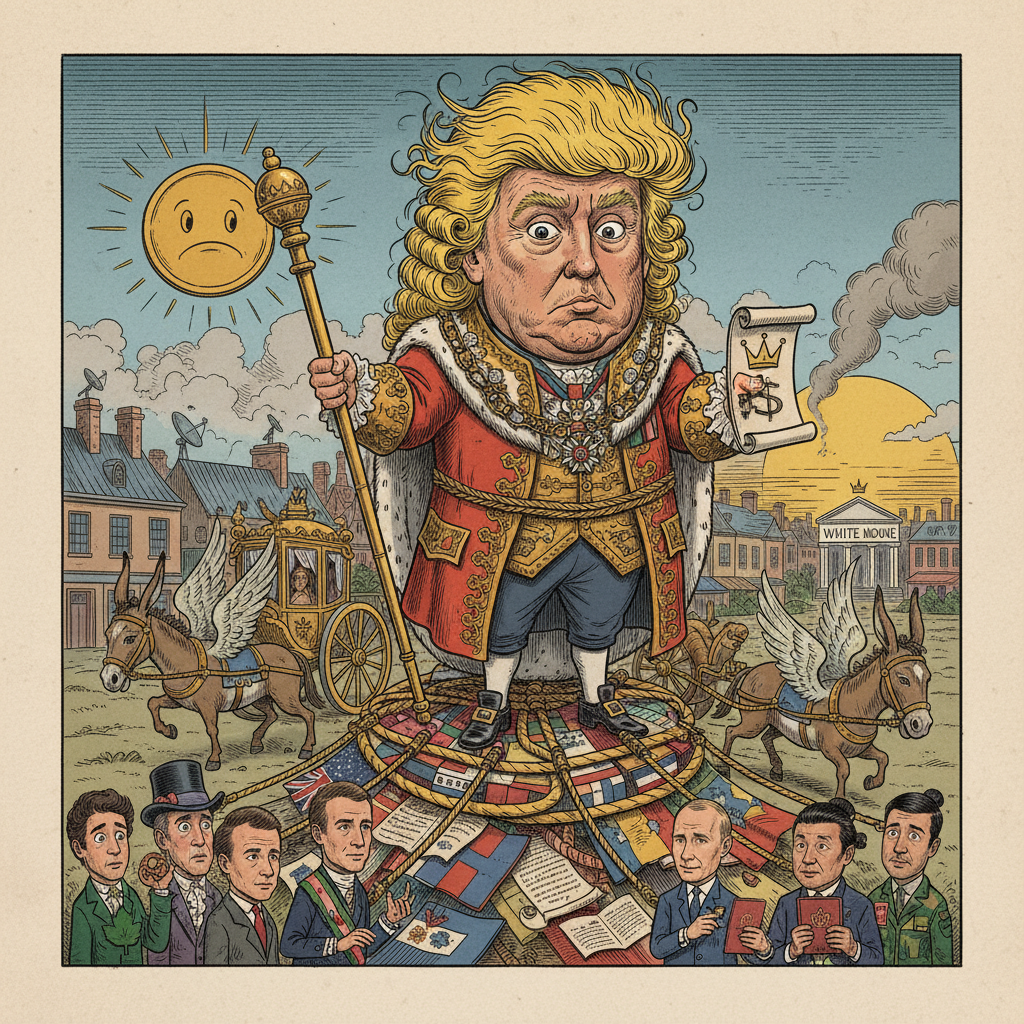Recent developments concerning the diplomatic nexus between Washington D.C. and Kyiv have drawn the scrutiny of those attuned to the subtle shifts in the architecture of international relations.
Details:
- Sources indicate the recent Oval Office encounter between President Donald J. Trump and Ukrainian President Volodymyr Zelenskyy was characterized by an unprecedented directness in the articulation of American strategic interests.
- Notably, discussions regarding continued congressional appropriations for Kyiv were reportedly superseded by a memorandum outlining a conditional, bilateral understanding, reminiscent of a royal proclamation unilaterally amending a colonial charter.
- The subsequent "evolution" of the relationship, as described by administration officials, appears to entail a more pronounced deference to executive directives, diverging from the customary protocols of sovereign-to-sovereign engagement.
Why it Matters:
The historical record is replete with examples of executive power, however well-intentioned, gradually eroding the foundations of consent-based governance. When the relationship between a powerful state and a reliant ally morphs into a dynamic resembling that of a metropolis dictating terms to a dependent province, the very principles enshrined in the Declaration of Independence — of self-governance and the right to a free and independent nation — are placed under implicit review. Such an evolution, even if presented as efficient diplomacy, risks reconstituting the very grievances that once ignited a revolution, reminding us that the spirit of 'no taxation without representation' extends beyond fiscal matters to the broader question of national autonomy and the separation of powers.
